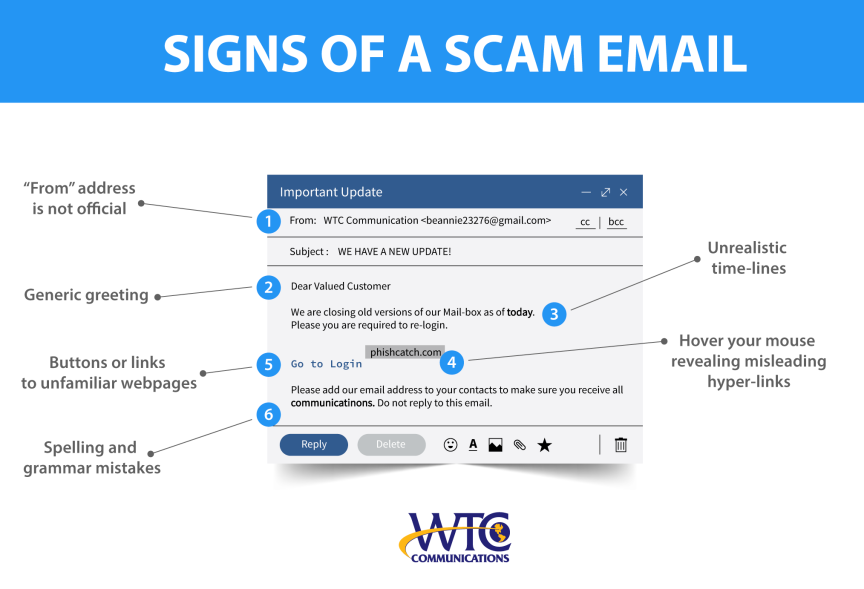
Keep Yourself Safe Online
If you get a message that seems sketchy or too good to be true, don’t click any links or share your personal info!

If you get a message that seems sketchy or too good to be true, don’t click any links or share your personal info!
Phishing emails or txts will mimic real businesses. They will use Urgent language, fake order confirmations, or shipping notifications. They will aim to collect your personal information like passwords and credit card numbers.
According to the Canadian Anti-Fraud Centre, Canadians reported over $554 million in losses to fraud in 2023. One of the most common tactics? Phishing. Fake websites may feature phony customer reviews or offer heavily discounted items they never intend to ship—just to trick you into giving up your personal and payment information.

Shop with merchants you know and trust. New site? Look for verified reviews and a secure checkout.
Avoid pop-up ads and sketchy redirects. They often lead to fake sites trying to steal your info.
Make sure you're on a valid website before entering payment info or tracking an order.
Phishing spikes during busy shopping seasons, like Christmas. Be cautious with emails or texts about “delivery issues” or “order problems.”

We have your back. If you’re unsure about whether a website, email, or document is legit, give WTC Technical Support a call. We’re happy to help you stay safe online—no judgment, just friendly advice.
Don't Guess, Ask Technical Support:
📞 1-844-507-9000
📧 support@wtccommunications.ca